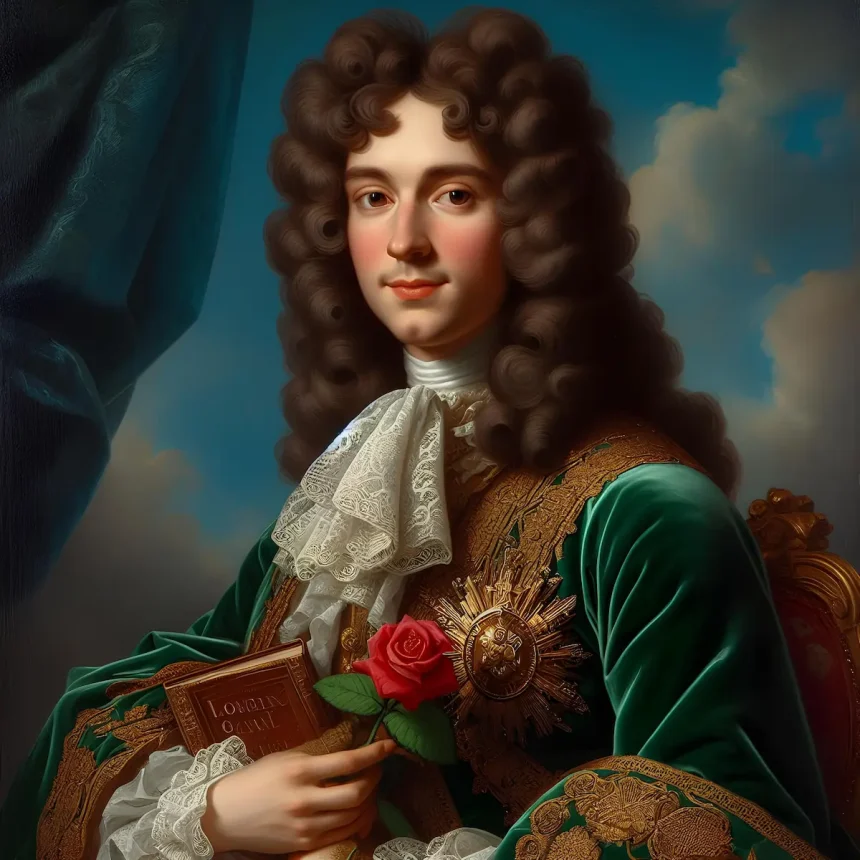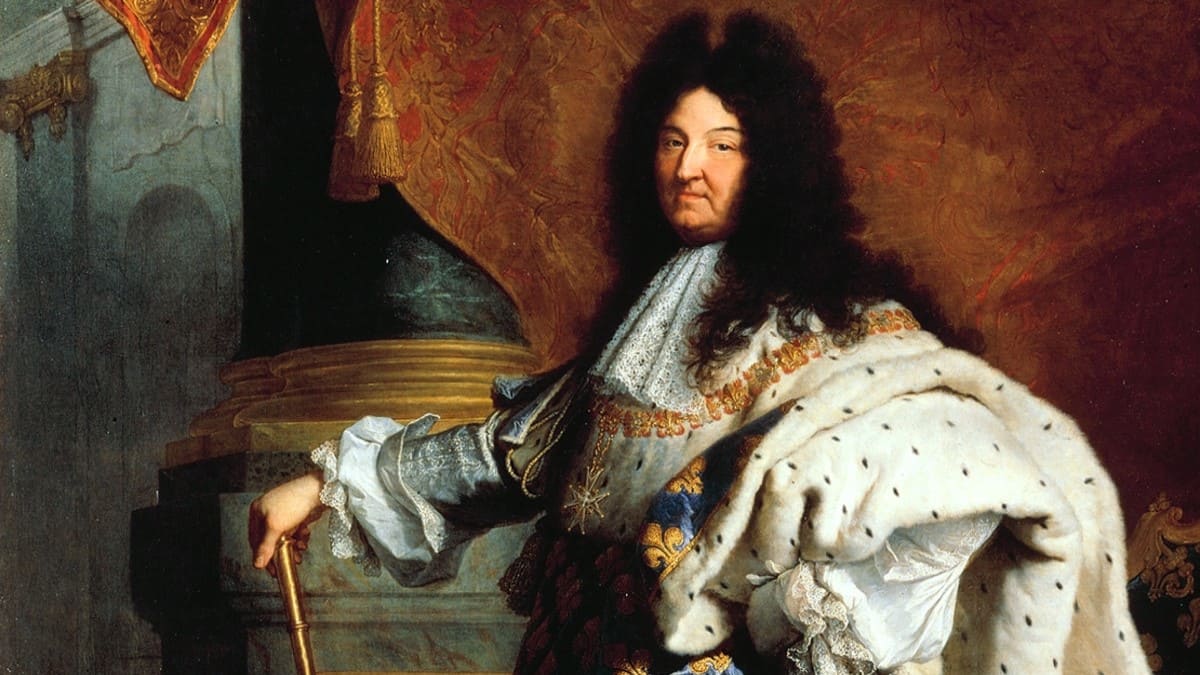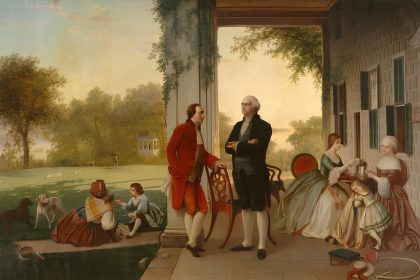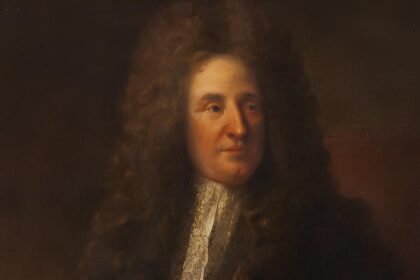Among the four First Valet of the King’s Bedchambe (or First Valet of the Sun King , Alexandre Bontemps remained in the history of France for having been the most renowned, the most courteous, the most beloved by the king, but the most feared by the ministers. Saint Simon, who was not tender, had these words: “A rare man of his kind, a man of domestic secrecy, who knows everything about the King, his habits, his private life, and rare things, does not gossip or spread any rumors.”
Alexandre Bontemps: A Life in the Service of Louis XIV
Alexandre Bontemps was born in June 1626 in Paris. Baptized in July 1628 in the Hôtel de Vendôme, which depended on the parish of Saint Roch, his godfather, and godmother were César de Bourbon, Duke of Vendôme (1594-1665), father of François de Vendôme, Duke of Beaufort, and Elisabeth de Bourbon (1614-1664). His father, Jean Baptiste Bontemps, originally from Aix en Provence, was a surgeon who entered the service of Louis XIII. Cardinal Richelieu appointed Jean Baptiste the King’s First Surgeon because he cut Louis XIII so well as a barber-surgeon. The king therefore kept him close by his side.
At sixteen, Alexandre had been appointed commendatory abbot of Hyverneaux, having received a very good education in letters. He remained at the head of this abbey only until 1655, but his descendants succeeded him until 1702. Thanks to his father, he inherited the position of First Valet de Chambre in 1652 and held it until 1659. On March 6, 1667, Alexandre married Claude Marguerite Bosc. They had four children, including Louis Alexandre, in March 1669. He remarried in March 1674 (following the death of his wife) with the half-sister of his first wife, but secretly. Saint Simon would say, “He is Bontemps’s Maintenon… Like master, like a servant!
“
After fifty years of service to the monarchy, the King’s confidant passed away on January 17, 1701, at Versailles, at the age of 74. Buried on January 19, 1701, in Paris at the church of Saint Louis en l’île, his heart is at the convent of the Feuillants on rue Saint Honoré. His entrails were transported to the church of Marly. At his death, the inventory of his property in 1701 amounted to 368,152 livres, which were divided between his two sons.
He earned 28,245 livres per year, plus various gratuities, totaling 61,245 livres per year.
Bontemps’ Diverse Functions
Being present at the wedding of the King and Françoise d’Aubigné suffices to etch him into posterity as the sole representative of the King’s Valets de Chambre. Becoming somewhat of a model, only his name is remembered among Louis XIV‘s servants, although there were four who shared the work, each serving three months per year.
A good man who devoted his heart and soul to his king, he was sometimes feared by ministers and public figures. As the king’s confidant, he witnessed his marriage to Madame de Maintenon. Referred to as the “foremost hand” of the King, Bontemps was the king’s confidant, executor of his most intimate orders, holder of his secrets, and organizer of his private life.
He held the following positions:
Among Bontemps’s prerogatives, this First Valet de Chambre ensured the King’s movements and arranged his entire stay. He compiled the list of guests authorized to visit Marly and was responsible for the organization and smooth running of the apartment evenings, which he attended as he wished. He was also in charge of allocating apartments at Versailles (no small task).
Colbert handed sums of money directly to Bontemps, to be distributed according to the king’s wishes. The First Valet de Chambre had so much power that Colbert sometimes came after him and then wrote in His Memoirs: “to do the work requested by Mr. Bontemps, in the chapel and the sacristy.”
Bontemps often begged the king to satisfy others, never for himself or his family. So loved by the king, Louis XIV once offered him for his son what he asked for others! In return for his position and the trust the king placed in him, he received certain benefits. Bontemps had two apartments in the Palace of Versailles, one located in the wing of the princes, a five-room apartment contiguous to that of Madame de Montespan.
Later, this apartment would house Louis XIV’s Cabinet of Curiosities, then Louis XVI’s Games Room. He also had an apartment at the Château de Saint Germain, one at the Tuileries, which he was able to acquire in 1687, the fiefs of Saulloy and Champmorin (county of Sancerre), a mansion on rue Saint Louis en l’Ile, a house in Fontainebleau, and another in Saint Germain.
Among other privileges, there are those concerning the baptism of Louis Alexandre (his first son), which was done in great pomp: the godfather being Louis XIV himself and the godmother being La Grande Mademoiselle. At the wedding of Louis Alexandre, the king was a witness and financially participated in the reception. Louis Alexandre received a cross from the king and his wife and a diamond necklace
Louis XIV having ennobled his favorite Valet de Chambre, the general armorial of the Bontemps registered in the Versailles registry was composed “of gold with a green tree and a red chief charged with a golden lion passing, coupled with blue with a golden face accompanied by three eagle heads attached in silver, placed two at the top and one at the bottom” in 1696.
Tributes to Bontemps
His death left a great void at the Court, with no valet being his equal. Tributes poured in, like that of Dangeau, who said, “He is a man blessed at court, who has never harmed anyone and has done much good.” Sourches mentioned, “In the evening, Bontemps died universally regretted by both the great and the small, and the King gave him this praise so beautiful and rare that he had never spoken ill of anyone and had never spent a day without speaking well of someone to him.” Even De Bellocq, the poet, composed a poem in his honor.
The Mercure journal published a seven-page article praising his character: “The Court has just lost a man of such rare goodness that scarcely a century produces one like him, and I do not even know if ever one like him has been seen. He spent his life doing good deeds. He did good for some and prevented harm from being done to others. He never spoke ill of anyone and only opened his mouth to speak well of those he heard mentioned. It is impossible to serve the king with more exactitude than he did. He was solely dedicated to it and had the same zeal for the smallest things concerning his service as for the most important. In the end, he was born less for himself than for his master and for all those who sought his help, even those who needed it without seeking it.
Mr. Bontemps died at the age of seventy-seven, regretted, esteemed, and cherished by the entire court and even by those who had heard of him without knowing him.”
A contemporary author, Olivier Seigneur, also paid tribute to him in his four detective novels.




















